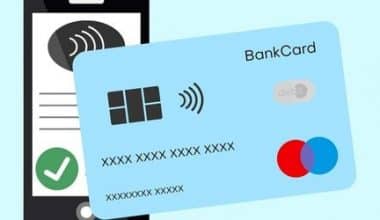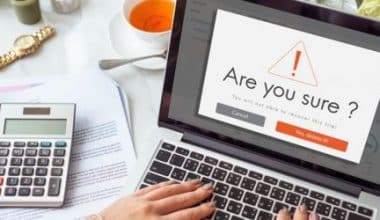Facebook offers business owners or individuals who wants to leverage on its wide audience and reach the platform to start the page to do so. And yes, it is one of the most effective ways to reach your target audience and build brand awareness. With the advertising tools Facebook offers for business page owners, you can start showcasing your products or services, engage with customers, and drive traffic to your website.
Want to understand what a facebook business page is and how you can start one? This post will provide all the information you need and tips on managing your new page.
What Is a Facebook Page?
A business Facebook page is a public profile created by businesses, organizations, celebrities, and anyone seeking to promote themselves publicly through social media. It differs from a personal Facebook profile because it is intended for commercial use and has additional advertising and tracking performance features.
Starting a busines Facebook page enables a business to interact with potential customers and fans, post updates, and display corporate logos and promotional products. They can run ad campaigns and connect to Facebook for Business, providing an integrated marketing platform.
How to Start a Business Facebook Page
To start a business Facebook page, you can follow these steps:
#1. Choose or Create a Personal Facebook Account
Facebook Business Pages are managed by a personal account known as the Page administrator. You can use your personal Facebook account or create a new one with your work email address to separate your personal and work lives. Log in to Facebook with your account, then create a Facebook Page.
#2. Enter Your Basic Information.
Fill in your business information when creating your Facebook Business Page. You will need to provide the following details:
- Name: This is the public name and title of your Page.
- Category: Start typing a word to describe your business, and Facebook will suggest options.
- Description/Bio: Write a one or two-sentence summary of your business.
#3. Complete Your Facebook Business Page Info
After creating your page, you can enter more details like your business hours, website, phone number, and other relevant information. These fields are optional, so you can choose to leave them blank if you prefer.
#4. Edit Your Page Info
Once your Facebook Business Page is created, you can edit the page info to add important details such as your business website, location, and contact information. You can also set a custom username for your Page and add action buttons to make it easier for customers to connect with you.
#5. Make Your First Post
Before inviting your audience to follow your Page, it’s recommended to post compelling content to engage your audience. You can share a welcome post, behind-the-scenes photos, funny memes, or links to written content that aligns with your brand. To create a post, go to your Page and click the box that asks, “What’s on your mind?” Then type your thoughts and add any images or media to make your post more engaging.
#6. Promote Your Facebook Business Page
After posting content, you can invite your personal Facebook friends to follow your Page. Additionally, you can promote your Page on other social media platforms, email your subscribers, and add “follow us” logos to your marketing materials. The goal is to grow your Facebook following and increase your audience reach.
How to Easily Manage Facebook Pages
To easily manage Facebook Pages, you have several options:
- Use Facebook Business Suite: Facebook Business Suite is a free tool provided by Facebook that allows you to manage multiple Facebook Pages in one place. It provides features such as analytics, publishing, and ad management.
- Use a social media management platform: These platforms offer more advanced features and allow you to manage multiple social media accounts, including Facebook Pages, in one dashboard. They provide features like scheduling posts, responding to followers, and analytics.
- Organize your pages into workspaces: Using a social media platform, you can create workspaces to organize your Facebook Pages. Each workspace can correspond to a brand or client, making managing and switching between different pages easier.
- Set up automation for your Facebook Pages: Automation can help streamline administrative tasks and save time when managing multiple Facebook Pages. However, finding the right balance and avoiding excessive automation that may seem robotic or impersonal is important.
Does a Facebook Business Page Have to Be Linked to a Personal Account?
You cannot start a Facebook business page without being linkung it to a personal account. Facebook requires every business page to be linked to a personal profile. The personal profile serves as the admin for the business page. However, the personal profile and business page information are separate and unrelated to the general public. Only the admin can connect the personal profile and the business page.
To keep the personal profile separate from the business page, Facebook treats them as separate profiles by default. Therefore, anything posted on the personal page will stay there and not appear on the business page, and vice versa. When using the business page, you will post as the business, and the rules governing business page activities will apply to you and vice versa.
If you want to manage a business page without creating it through your profile, someone else can make you their page admin. However, creating a dummy personal profile to set up a business page is not recommended, as Facebook frowns upon this practice, and it could deactivate your account and page.
It is worth noting that while multiple people can manage and contribute to a business page, only one person can manage a personal profile. The page roles feature gives different access levels to business page managers.
Features of a Facebook Business Page
When you create a Facebook page for your business, consider the following features:
- Post Types: The Post Types section in “Posts” helps businesses identify best-performing content and optimize strategies for increased audience engagement on their Page..
- Liking Other Pages as a Brand: Facebook allows businesses to like other pages through their brand page, which helps them show support to partners and other companies they endorse. Businesses can also feature five pages they have liked on their brand page.
- People and Other Pages: This feature provides a comprehensive list of people and businesses that have liked a business page. It allows businesses to view and analyze the data of the people who have liked their page, such as demographics and engagement metrics.
- Facebook Response Assistant: This tool helps save time for teams that don’t have a 24-hour social marketing team. It allows businesses to set up auto-responses to messages received on their Facebook page, ensuring that customers receive timely responses even when the business is not available to respond immediately.
- Audience Insights and Demographics: Facebook Business Pages provide access to audience insights and demographics, allowing businesses to understand their audience better and tailor their marketing strategies accordingly. This data can help inform demographic targeting and improve campaign effectiveness.
Other features include:
- Call-to-Action (CTA) button: You can add a CTA button to your page to encourage visitors to take specific actions such as booking an appointment, purchasing, or signing up for your newsletter.
- Messenger: Facebook Messenger integration allows you to communicate with your audience directly through private messages.
- Events: You can create and promote events on your Facebook Business Page. This is a great way to generate interest, attract attendees, and inform your audience about upcoming events.
- Facebook Shops: You can set up an online store on your Facebook Business Page using Facebook Shops, which will allow you to showcase and sell your products directly on Facebook.
Benefits of Using Facebook Business Pages
There are several benefits of using a Facebook business page. They include:
- Increased brand visibility and brand: A Facebook business page allows you to create a presence for your brand. It allows you to reach a wide audience and increase your brand’s visibility and build brand loyalty.
- Targeted advertising: Facebook offers powerful advertising tools that allow you to target specific demographics, interests, and behaviors. This helps you reach your ideal audience and increase the effectiveness of your marketing campaigns.
- Customer engagement: Facebook provides a platform for direct communication with your customers. You can engage with them through comments, messages, and posts. This helps build relationships, gain customer feedback, and address concerns or inquiries.
- Analytics and insights: Facebook provides detailed analytics and insights about your page’s performance. You can track metrics such as reach, engagement, and audience demographics. This data helps you understand your audience better and make informed decisions about your marketing strategies.
- Cost-effective marketing: Compared to traditional advertising methods, Facebook advertising is generally more cost-effective. You can set a budget that suits your needs and target a specific audience, maximizing your return on investment.
- Integration with other marketing channels: Facebook can be integrated with other marketing channels, such as email marketing, website promotions, and events. This allows you to create a cohesive marketing strategy and reach your audience through multiple touchpoints.
- E-commerce capabilities: Facebook provides features like the Facebook Shop, which allows you to showcase and sell products directly on your page. This can be a valuable tool for businesses expanding their online presence and generating sales.
- Social proof and credibility: A Facebook business page adds credibility to your brand. It allows potential customers to see your business’s reviews, ratings, and interactions with other customers, which can build trust and influence their purchasing decisions.
- Host and gain revenue through paid events: Facebook allows your business page to host paid exclusive live events. This can be beneficial if you offer high-demand live training and have a sizable Facebook audience.
Facebook Insights
Facebook Page Insights is a powerful tool provided by Facebook for tracking the performance of your Facebook business page. It provides valuable data to understand user interaction, engagement, and audience demographics. The data offered is quite basic and does not go back very far (from a maximum of 28 to 90 days), but it can provide a good quick overview of what’s happening with your Page.
The data from Facebook Insights can help you to determine the best time, the best day of the week to post, and what type of content is most popular. It can also help you to track the performance of your page and find emerging patterns. In addition, it can be used develop a more effective social media strategy.
Key Metrics in Facebook Page Insights
- Reach: This includes people who saw content posted on your Page as well as people who saw content posted about your Page by other social users.
- Visits: The number of times people visited your Facebook Page.
- New likes: The number of new people who liked your Facebook Page.
- Follower growth rate: How quickly your Page is gaining or losing followers.
- Virality rate: The percentage of times content from your Page was displayed as a result of reactions, comments, and shares
How to Access Facebook Page Insights
From your Facebook Business Page, click Insights in the left menu under Professional Tools. Click on Your Page, Posts, or Audience to find the metrics you’re looking for.
How Much Does a Facebook Business Page Cost?
Creating a Facebook Business Page is free, but it comes with costs associated with content creation and advertising. Users can create posts, images, and videos and share stories for free or pay for professional content.
Also, Facebook ads for businesses are paid. There are two ways to set up spending for your Facebook ads: campaign spending limit and account spending limit. Facebook guarantees that it will never spend more on advertising costs than the maximum amount businesses set as their budget. So, it’s important to lay out your online marketing goals and create an advertising plan to better understand how much money you can expect to invest and where you’ll spend it.
Related Articles
- FACEBOOK BUSINESS PAGE: Meaning, Creation, and Cost
- FACEBOOK FOR BUSINESS: All You Need to Know
- HOW DOES FACEBOOK PAY WORK: Complete Guide and All You Must Know
- 15 Best Businesses to Invest in 2023






